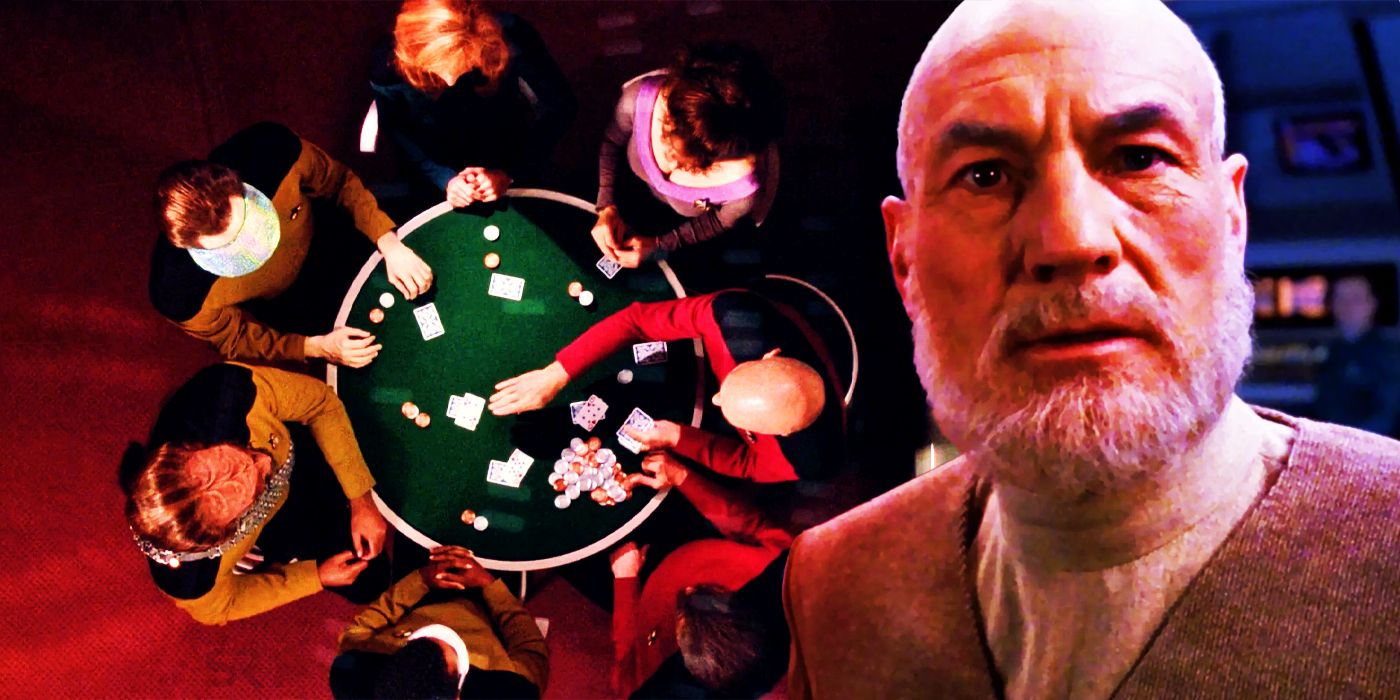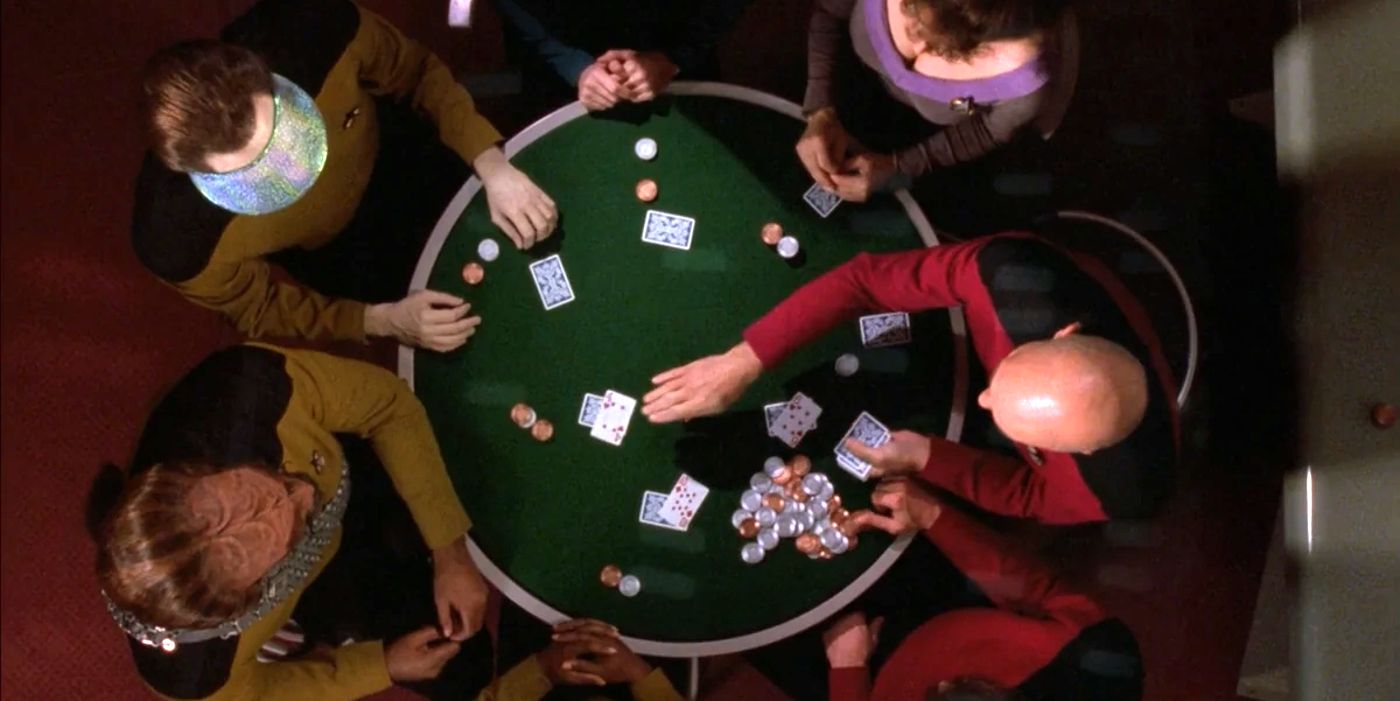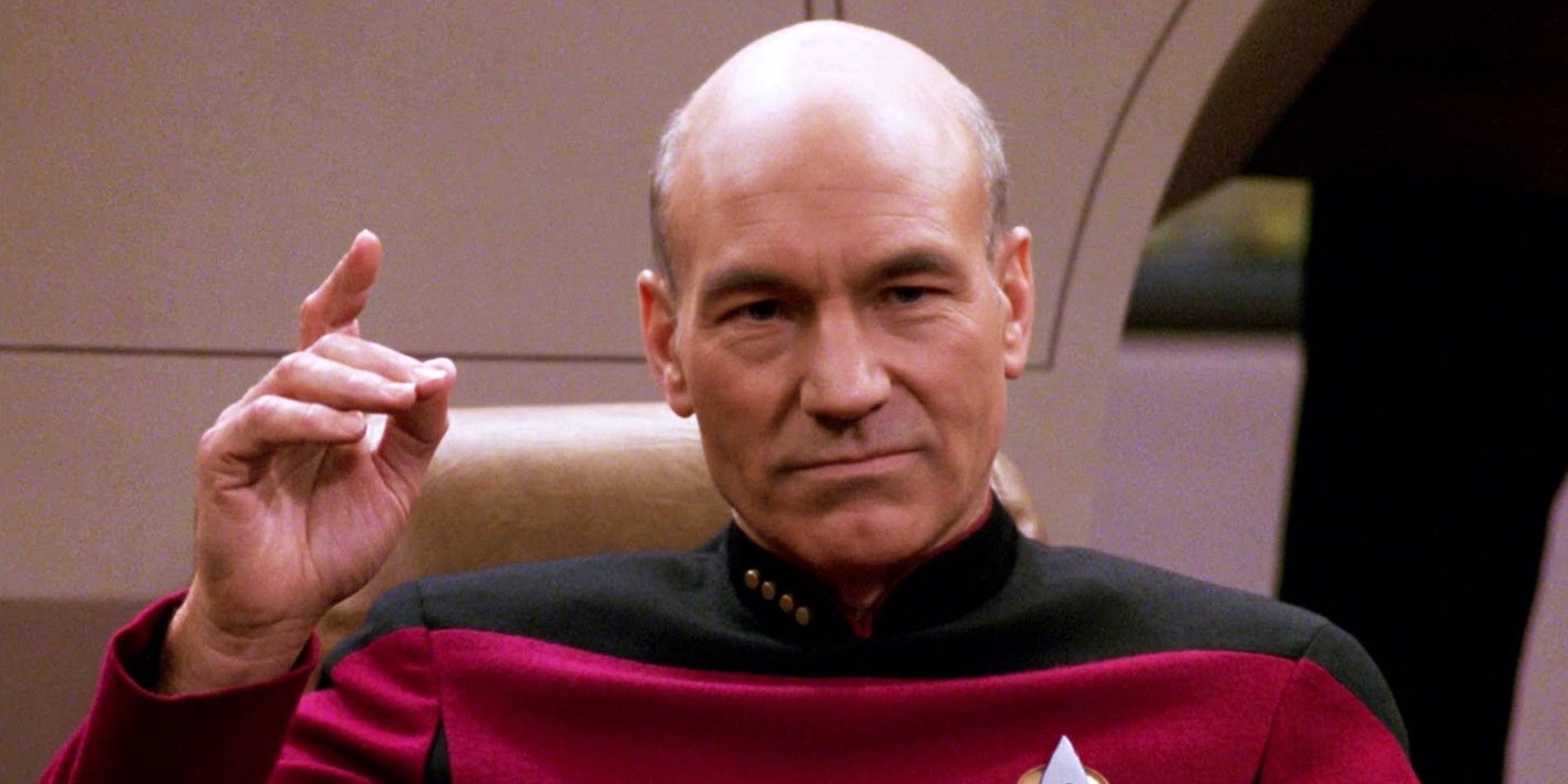The series finale of Star Trek: The Next Generation saw Captain Jean-Luc Picard (Patrick Stewart) join his USS Enterprise-D senior staff for a game of poker, a gesture that meant much more than it might seem. In the TNG season 7 finale "All Good Things," Picard finds himself shifting through three different time periods: his past, present, and future. The time shifts are eventually revealed to be the work of the omnipotent entity Q (John de Lancie), who is attempting to help Picard solve the mystery of a spacial anomaly that threatens the very existence of humanity.
While Picard faces significant obstacles in all three time periods, he's most affected by the glimpse of his potential future. Two decades after his adventures on the Enterprise-D, Picard has retired to his family vineyard as a degenerative brain disease slowly robs him of his faculties. Most concerning, he finds himself largely estranged from his former crew, who are mostly unhappy and unfulfilled themselves; he married and divorced Dr. Beverly Crusher (Gates McFadden) - now Captain Beverly Picard - and the tragic death of Counselor Deanna Troi (Marina Sirtis) created a rift between Will Riker (Jonathan Frakes) and Worf (Michael Dorn). After he solves the anomaly mystery, Picard resolves to make sure that future doesn't come to pass.
What Picard Playing Poker In TNG's Finale Really Means
Unlike the personable, gregarious Captain James T. Kirk (William Shatner) of Star Trek: The Original Series, Captain Picard always attempted to maintain something of a professional distance from his crew. He often used excuses about duty and Starfleet chain of command, but it really came down to Picard being an intensely private man with difficulty opening himself up to any sort of intimacy, be it romantic or familial. His closest confidantes on the ship tended to be Dr. Beverly Crusher and Guinan (Whoopi Goldberg), both of whom he'd known for years before they were on the Enterprise-D together.
Picard tended to avoid social encounters like the regular poker games held in Commander Riker's quarters. But after seeing how he and his crew grew apart in the potential future, Picard decided to make an important gesture by joining the game with his senior staff, acknowledging the obvious fact that they were not just his crew, they were his closest friends. With Star Trek Generations on the immediate horizon, "All Good Things" was never going to be the final act for Picard and his friends, so an acknowledgment of their shared affection was a touching way to end that chapter of their story.
How Picard Changed Throughout TNG & The Movies
Picard began TNG as a gruff, largely humorless administrator who kept most of his crew at arm's length. He always had a certain level of empathy, but he could come across to the uninitiated as cold. Picard eventually revealed himself to be a far more complex, interesting man; a student of history, a former angry young man, and something of a romantic. He loosened up over the years on TNG, eventually letting his guard down somewhat for close friends like Commander Riker and Deanna Troi, and becoming an important mentor and father figure to both Ensign Wesley Crusher (Wil Wheaton) and Lieutenant Commander Data (Brent Spiner).
By the time of the TNG movies, Picard had largely embraced his crew as the closest thing he had to family. The icy demeanor was essentially gone, replaced by a warm, fatherly presence, and even a bit of a playful sense of humor. Star Trek: The Next Generation let Jean-Luc Picard grow from an emotionally stunted, insecure man into a proud patriarch, one of its greatest achievements.



